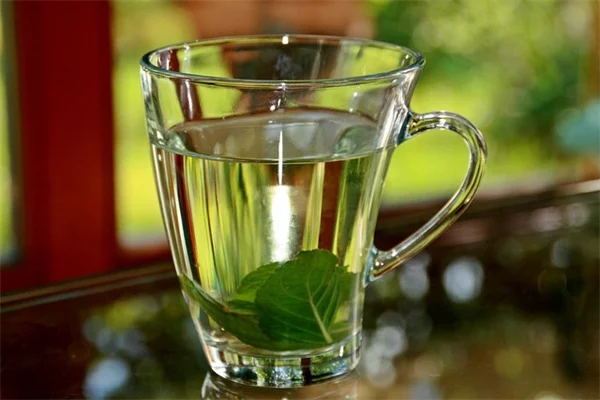Do multivitamins help you live longer? The answer might surprise you: No, they don't. A massive new study tracking nearly 400,000 healthy U.S. adults for over 20 years found that daily multivitamin users actually had a 4% higher mortality risk than non-users. Here's the deal - while one in three Americans pops these supplements religiously, spending $8 billion annually, the science shows they provide zero proven longevity benefits for healthy individuals.Now before you toss your vitamin bottle, let's be clear: this doesn't mean vitamins cause death. But it does mean that if you're taking them hoping to prevent chronic diseases or extend your life, you might be wasting your money. The National Cancer Institute researchers who conducted this landmark study found no protective effects against heart disease, cancer, or overall mortality. And get this - these findings align with what the U.S. Preventive Services Task Force has been saying since 2014!Here's what I tell my friends: unless you have a specific deficiency or medical condition, you're probably better off spending that supplement money on high-quality whole foods. Because here's the truth - no pill can replicate the thousands of beneficial compounds found in real, unprocessed foods. But don't just take my word for it - let's dive deeper into what this groundbreaking research really means for your health.
E.g. :High Blood Pressure and Cholesterol: 18-20% Higher Heart Risk
- 1、The Truth About Multivitamins: Do They Really Help You Live Longer?
- 2、Understanding the Vitamin Paradox
- 3、Should You Take a Multivitamin? Expert Advice
- 4、Making Smart Choices About Supplements
- 5、Practical Takeaways for Your Health
- 6、The Hidden Costs of the Supplement Industry
- 7、Alternative Approaches to Nutritional Insurance
- 8、When Supplements Actually Make Sense
- 9、Making Peace With Nutritional Imperfection
- 10、FAQs
The Truth About Multivitamins: Do They Really Help You Live Longer?
What the Latest Research Reveals
Let me tell you something that might surprise you - that daily multivitamin you've been religiously taking? It might not be doing much for your longevity. A massive study tracking nearly 400,000 healthy American adults for over two decades found something shocking: people taking multivitamins actually had a 4% higher mortality risk than those who didn't!
Now before you throw out your vitamin bottle, let's break this down. The National Cancer Institute researchers who conducted this study weren't saying vitamins cause death - but they did find zero evidence that multivitamins help prevent chronic diseases or extend life. And get this - we're talking about a supplement that one in three American adults takes, spending a whopping $8 billion annually!
Why This Study Matters
Here's what makes this research special:
| Study Feature | Why It's Important |
|---|---|
| 390,124 participants | Massive sample size means more reliable results |
| 20+ years follow-up | Long-term effects can be properly observed |
| Healthy adults only | Removes "sick user" bias from results |
But wait - you might be thinking, "If multivitamins don't help, why do so many people take them?" Great question! It turns out we've fallen for some clever marketing. The idea that we can get all our nutrients from one pill is appealing, but real food contains thousands of beneficial compounds that pills simply can't replicate.
Understanding the Vitamin Paradox
 Photos provided by pixabay
Photos provided by pixabay
The Healthy User vs. Sick User Effect
Researchers faced two tricky situations when studying vitamins:
The "Healthy User" Effect: Picture your super-fit neighbor who runs marathons, eats kale salads, and pops vitamins religiously. Is their good health from the vitamins... or their overall lifestyle? That's what makes studying supplements so tricky!
The "Sick User" Effect: On the flip side, some people start taking vitamins after getting sick, hoping to feel better. This can make vitamins look harmful when they're really just associated with illness.
What the Experts Say
Dr. Erikka Loftfield, the study's lead author, told us: "After adjusting for diet, exercise, and smoking, we still found no mortality benefit from multivitamins." And she's not alone - the US Preventive Services Task Force has been saying this since 2014!
But here's something interesting: "Does this mean vitamins are useless for everyone?" Not exactly. Dr. Parul Goyal from Vanderbilt explains that while healthy people may not benefit, certain groups - like those with anemia or postmenopausal women - might still need supplements.
Should You Take a Multivitamin? Expert Advice
When Vitamins Might Help
Registered dietitian Alyssa Kwan from Stanford Medicine gave us the real talk: "If you're eating balanced meals with plenty of fruits and veggies, you probably don't need a multivitamin." But she notes exceptions:
- People with poor appetites
- Those who can't meet nutritional needs through diet
- Specific medical conditions requiring supplementation
 Photos provided by pixabay
Photos provided by pixabay
The Healthy User vs. Sick User Effect
Kristin Kirkpatrick from Cleveland Clinic puts it bluntly: "A multivitamin isn't insurance against eating junk food!" She emphasizes that no pill can replace the benefits of whole foods, which contain fiber, antioxidants, and other beneficial compounds missing from supplements.
Think about it this way - an orange gives you vitamin C plus fiber, flavonoids, and natural sugars that work together in ways science still doesn't fully understand. A vitamin C pill? Just one isolated nutrient.
Making Smart Choices About Supplements
Who Might Actually Benefit?
While the study focused on generally healthy adults, certain groups may still need supplements:
Pregnant women often need extra folic acid. Vegans might require B12. Older adults sometimes need more vitamin D. The key? Talk to your doctor before starting any supplement regimen.
The Supplement Industry Reality
Here's something that might shock you: supplement companies don't have to prove their products work before selling them! Unlike drugs, the FDA doesn't approve supplements for safety or effectiveness. That means clever marketing often drives sales more than solid science.
Next time you see a vitamin commercial, ask yourself: "Is this solving a real problem I have, or just creating worry to sell me something?" Because at $8 billion a year, this industry has mastered the art of making us think we're deficient!
Practical Takeaways for Your Health
 Photos provided by pixabay
Photos provided by pixabay
The Healthy User vs. Sick User Effect
Instead of obsessing over supplements, concentrate on these proven health boosters:
- Eat more colorful fruits and vegetables
- Get regular physical activity
- Prioritize quality sleep
- Manage stress effectively
The Final Word from Experts
After reviewing all this evidence, here's my advice: unless you have a specific diagnosed deficiency or belong to a high-risk group, you're probably better off spending your supplement money on high-quality groceries. Your body knows the difference between real food and synthetic nutrients!
Remember - no pill can replace a balanced diet and healthy lifestyle. As the old saying goes, "An apple a day keeps the doctor away"... and apparently, so does skipping unnecessary vitamins!
The Hidden Costs of the Supplement Industry
Environmental Impact of Vitamin Production
You know what they never show in those cheerful vitamin commercials? The massive environmental footprint of producing all those little pills. Manufacturing synthetic vitamins requires significant energy and resources - we're talking about industrial-scale chemical processes that often rely on petroleum byproducts!
Let me paint you a picture: to make just one bottle of multivitamins, factories consume enough electricity to power a small home for a week. And get this - the supplement industry generates over 100,000 tons of plastic waste annually from bottles alone. Makes you think twice before automatically reaching for that daily vitamin, doesn't it?
The Psychology Behind Supplement Use
Why do we keep buying vitamins when study after study shows limited benefits? It's all about the placebo effect and good marketing. When you take that shiny pill each morning, you feel like you're doing something positive for your health - even if science says otherwise.
Here's a funny thought: if vitamin companies sold their products in plain brown bottles labeled "Probably Won't Help You Live Longer," how many do you think they'd sell? Probably about as many as gym memberships in January!
Alternative Approaches to Nutritional Insurance
Building a Nutrient-Dense Diet
Instead of popping pills, let's talk about real food solutions. Did you know that eating just one Brazil nut gives you your entire daily selenium requirement? Or that a half-cup of cooked spinach provides more absorbable iron than most iron supplements?
Here's my favorite nutrient-packed meal plan that beats any multivitamin:
| Meal | Nutrient Powerhouses | Key Benefits |
|---|---|---|
| Breakfast | Greek yogurt with berries and walnuts | Protein, probiotics, antioxidants, omega-3s |
| Lunch | Quinoa salad with chickpeas and mixed veggies | Complete protein, fiber, phytonutrients |
| Dinner | Salmon with sweet potato and broccoli | Omega-3s, vitamin A, vitamin C, potassium |
The Power of Food Synergy
Here's something supplement makers don't want you to know: nutrients work better together. "But wait," you might ask, "can't I just get everything I need from a pill?" Nope! The vitamin C in oranges helps your body absorb the iron in spinach. The healthy fats in avocado boost absorption of antioxidants in tomatoes. These food synergies are why nature packages nutrients together!
Think about it like this - you wouldn't take separate pills for guitar strings, drumsticks, and a microphone and expect to hear beautiful music. Nutrients need their "bandmates" to create the symphony of health in your body!
When Supplements Actually Make Sense
Targeted Supplementation Strategies
Now, I'm not saying all supplements are useless. There are smart ways to use them. For example, taking vitamin D in winter months if you live in northern states makes sense - our bodies can't make enough from sunlight when days are short.
Here's a pro tip: instead of a multivitamin, consider these targeted supplements that often have stronger science behind them:
- Omega-3s for heart health
- Probiotics for gut health
- Magnesium for muscle relaxation
- Vitamin B12 for vegans
Reading Supplement Labels Like a Pro
If you do buy supplements, become a label detective. Look for third-party testing seals like USP or NSF. Check the serving size - some shady companies list nutrients per "two capsules" when the bottle says take one! And watch out for ridiculous megadoses - your body just pees out most excess water-soluble vitamins.
Red flag alert: If a supplement claims to "boost immunity" or "support brain health," that's often marketing fluff. The FDA doesn't regulate these claims like drug claims, so companies can say almost anything!
Making Peace With Nutritional Imperfection
The 80/20 Rule of Healthy Eating
Here's a liberating thought: you don't need perfect nutrition every single day. Our bodies are incredibly resilient and can handle occasional nutritional gaps. Focus on eating well 80% of the time, and don't stress about the other 20%.
I'll let you in on a secret - even registered dietitians eat pizza sometimes! The difference is we don't panic and reach for a vitamin pill afterward. Our bodies have sophisticated systems for managing temporary nutritional shortages.
Cultivating a Healthy Relationship With Food
At the end of the day, the healthiest approach is to enjoy real, varied foods without obsessing over every micronutrient. "But what if I'm missing something?" you might worry. Relax! Unless you're eating the same three foods every day for months, your body is probably getting what it needs.
Remember, humans evolved without nutrition labels or vitamin supplements. Our ancestors did just fine eating seasonal, local foods - and we can too. The best "supplement" is a diverse, colorful plate and the joy of eating delicious, nourishing meals!
E.g. :Multivitamin Use and Mortality Risk in 3 Prospective US Cohorts ...
FAQs
Q: Do multivitamins really not help with longevity?
A: That's exactly what the latest research shows. After tracking nearly 400,000 healthy U.S. adults for over 20 years, scientists found no evidence that daily multivitamin use reduces mortality risk. In fact, the study published in JAMA Network Open revealed a surprising 4% higher mortality risk among supplement users. Now, this doesn't mean vitamins cause death - correlation isn't causation. But it does mean that if you're taking them hoping to live longer, you might want to reconsider. The study's lead researcher, Dr. Erikka Loftfield from the National Cancer Institute, told us they carefully controlled for factors like diet and exercise, and still found zero longevity benefit.
Q: Why do so many people take multivitamins if they don't work?
A: Great question! Here's the reality - the supplement industry has done an amazing job marketing the idea that we all need these pills. They've convinced one in three Americans to spend $8 billion annually on multivitamins! But here's what they don't tell you: unlike drugs, supplements don't need FDA approval proving they work before hitting shelves. Many of us take them "just in case," thinking they can't hurt. But this study suggests that at best, they're an expensive placebo for healthy adults. As dietitian Kristin Kirkpatrick from Cleveland Clinic told us, "A multivitamin isn't insurance against eating junk food!"
Q: Are there any people who should still take multivitamins?
A: Absolutely - some groups may still benefit. While the study focused on generally healthy adults, experts we spoke with noted exceptions. Pregnant women often need extra folic acid. Vegans might require B12. Older adults sometimes need more vitamin D. People with conditions like anemia or diabetes may benefit too. The key? Don't self-prescribe - talk to your doctor first. As Stanford Medicine dietitian Alyssa Kwan told us, "I only recommend multivitamins when patients can't meet nutritional needs through diet alone." So if you fall into one of these categories, supplements might make sense - but for most healthy eaters, they're probably unnecessary.
Q: What's better than taking multivitamins for longevity?
A: Focus on what actually works! Instead of popping pills, invest your time and money in proven health boosters: 1) Eat more colorful fruits and veggies (they contain thousands of beneficial compounds pills can't replicate), 2) Get regular exercise, 3) Prioritize quality sleep, and 4) Manage stress. As Dr. Parul Goyal from Vanderbilt University Medical Center explained, healthy people who eat well and exercise are already getting what they need from food. Remember - no supplement can replace the benefits of real, whole foods and a healthy lifestyle. That's the real secret to longevity!
Q: How reliable is this multivitamin study?
A: This is one of the most comprehensive studies ever done on this topic, with three huge strengths: 1) It followed 390,124 people - that's massive! 2) The follow-up period lasted over 20 years - extremely rare in nutrition research, and 3) They only included healthy adults to avoid the "sick user" bias. While it's observational (meaning it can't prove cause and effect), the researchers carefully controlled for lifestyle factors that could skew results. Plus, their findings align with previous recommendations from the U.S. Preventive Services Task Force. As one expert told us, "The results weren't surprising to those of us in the field." So yes - this is about as reliable as nutrition research gets!

